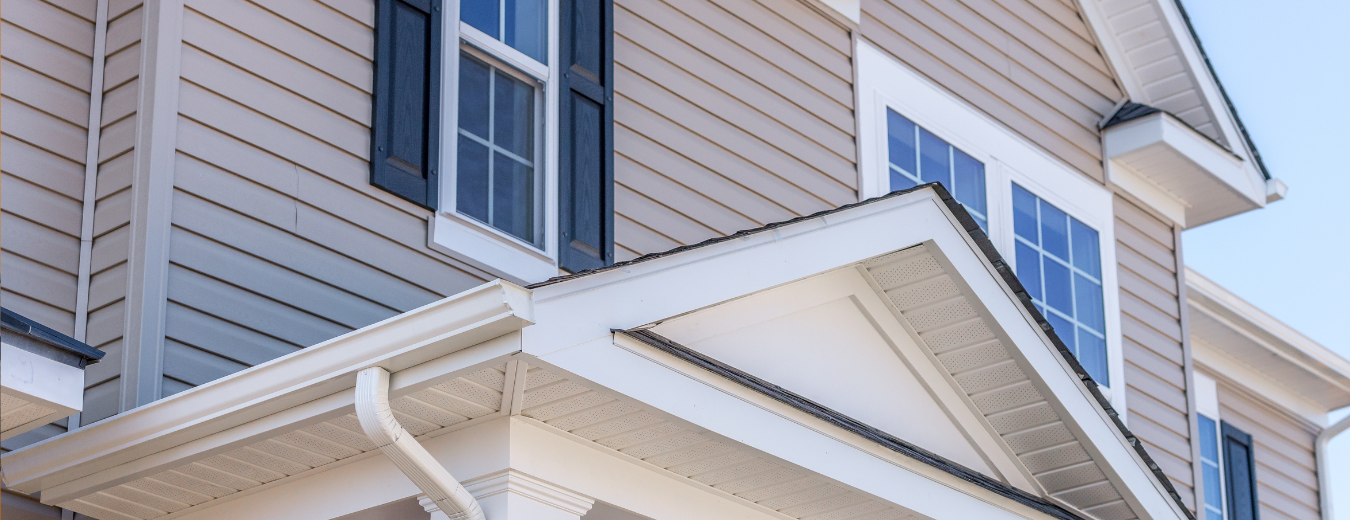
How to Care For Clapboard Siding
Posted on December 28, 2021
Wooden clapboard siding is a beautiful way to protect your home from the elements. It is an investment that requires regular care and maintenance to stay beautiful. Keep it looking great for years to come with these tips on caring for wood clapboard siding from our experts.
To avoid what could be very costly repairs, you’ll need to be proactive with your care plan. Maintenance should never be put off or you could risk needing a full replacement of your clapboard, shingles or wooden siding.
Since wood is natural and contains natural moisture and oils, you’ll want to seal it regularly. Wood naturally expands and contracts with the moisture and humidity in it and the air. Your sealant will need to do the same.
When left in a natural state, wood is prone to chipping, cracks and stress points at the seams. To avoid getting moisture within the wood, you’ll need to seal it. This will keep water out and avoid rot and mildew. You have options for protecting the wood. Choose from a paint, stain or sealer.
Paint
Paint sits on top of the wood as a protective layer. It sits on top of the wood, with an opaque color. If you want to change the color of the wood to something unnatural, this is the best bet for you. When done right, painted wood can last up to 5 years before it begins to degrade. Cracks and chips are the first sign that it’s time to consider repainting.
Stain
Stain penetrates into the wood and seals it against wetness. It is more useful to tint the wood a natural color while still protecting it. Be cautious when choosing your color though. Since it soaks into the wood, changing the color after it’s been stained is very difficult. The prep work on a stain is far less than paint. That translates to less work for you or the professionals you hire.
Sealing
Sealing is a great option to both protect your wood while keeping it’s neutral beauty intact. Sealants typically offer a clear option that will do nothing but protect. Others have some tints and slight colors that will just enhance the natural color of your wood. This is especially important for light colored woods that tend to turn silvery over time.
Cleaning
Cleaning is important no matter what you choose to protect wood. It’s a good idea to plan for a full inspection and cleaning each spring. This will keep your deck protected year after year while also preparing it for the busy summer months of fun.
To clean your siding or wooden elements, use warm soapy water and a soft bristle brush. Start at the bottom and work your way to the top. This will help you avoid dirty drip marks as you work. Work in 20-foot sections and rinse as you go. This should remove all dirt and most stains. Some marks may take more work to remove them.
Mildew
For mildew issues, get a fungus-killing cleaner, available at paint or home improvement stores. Before you attack the stain, make sure you have eye protection. Also take measures to protect your plants from splashes and run off. You’ll want to rinse the area thoroughly with clean water when the stain is gone.
Rust
Rust stains typically show up from a metal nail or screw mixing with water. First, address the problem. Remove the nail or screw and replace it with a galvanized one. Next, clean the area with oxalic acid in warm water with a 4 oz. to one cup water ratio. Again, make sure you use eye protection and acid-proof gloves. Be sure not to splash. Scrub the area with a soft bristle brush and rinse.
Restoration
Restoring your wood back to its original color can prolong the look of the siding and keep it protecting your home. If this is the outcome you want, look for a wood cleaner and brightener. It’s used for decks mostly, but works on any natural siding as well.
As you restore, watch for pieces of wood that are damaged and need replacement. To replace a piece of wood without damaging or removing adjacent pieces can be difficult for an average homeowner. If you run into these sorts of problems, it’s a good idea to bring in some professional help.
Prevention
Vigilance will be your best course of action with wooden siding on your house. Water always causes problems and maintaining the water tight seal is key. Places that are commonly weaker include anywhere siding is against doors, windows, moldings or other architectural aspects. Seals must remain in good repair.
Damage can also come from foliage against the siding. Trim back trees and branches as well as bushes and shrubbery. Nothing should be against the walls. Allow enough room to stand between your flora and the house.
Still having problems with siding? Our experts are here to help! Call CertaPro today for an estimate!





